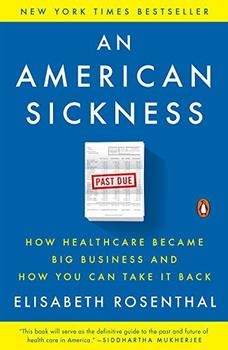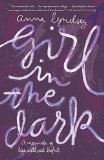Summary | Excerpt | Reviews | Beyond the book | Read-Alikes | Genres & Themes | Author Bio

Close Calls, Cold Cases, and the Mysteries of Medicine
by Brendan ReillyJanuary, 2010. A wealthy architect in his early fifties lies in bed at New York Presbyterian Hospital. He has a rare kind of pancreatic cancer that has spread to his liver. Within days, maybe hours, he'll be dead. The senior physician by the patient's bedside asks him the name of his regular doctor.
The question vexes the patient, so he looks at his wife.
"You mean like a family doctor?" she asks.
"Yes," the physician says.
The wife explains there's no family doctor; all her husband's doctors are cancer specialists.
The physician recalling this scene, Brendan Reilly—and the author of One Doctor: Close Calls, Cold Cases, and the Mysteries of Medicine—wonders how this is possible, that an intelligent man of considerable financial means, whose cancer has previously failed treatment at several of the world's most renowned hospitals, finds himself in this situation: not having a single doctor who knows him well, watching out for his best interests.
Patients' preferences in the morass of today's medical landscape, coupled with the accelerated decline of primary care doctors, are two of the many issues Reilly confronts in his illuminative and deeply moving book: part memoir and part expert commentary about the changes —both good and bad—in health care during his 40 years in medicine. Early in his career, Reilly was a primary care physician in New Hampshire and later served as the chief of medicine at Chicago's Cook County Hospital, the basis of the popular TV show ER. Currently he is executive vice chair of medicine at New York-Presbyterian Hospital/Weill Cornell Medical Center.
The cancer patient and his wife believed he was receiving optimum care by having several specialists, despite the absence of a general practitioner. This kind of mindset is increasingly common—and troubling, Reilly contends. In his view and experience, people need one doctor who knows them, has followed their medical history over time before they end up in the hospital and, depending on the case, will resume care after they leave the hospital.
Although these "one doctors"—those who have devoted their careers to family medicine and other primary care specialties like pediatrics and internal medicine—do, of course, still exist, Reilly worries that they may one day become extinct precisely when their services will be more necessary than ever before. Modern medicine is complicated enough. Odds are it won't become much easier to navigate in the foreseeable future. One doctor, or one advocate, Reilly writes, is needed to oversee and coordinate care, to help patients make informed decisions that are personally right for them.
Why the threatened extinction? One reason is that this kind of doctoring isn't nearly as lucrative as medical subspecialties. It's no secret that medical students amass enormous debts. As a result, in many U.S. medical schools and teaching hospitals, Reilly explains these physicians-in-training are "actively discouraged from, even ridiculed for, pursuing careers as primary care doctors."
Reilly's insightful ruminations make for a fascinating read, further strengthened by fast-paced, first-person accounts of challenging cases, most of which take place during two weeks in 2010. Among numerous patients, we meet a Croatian man with metastatic bladder cancer and heart distress as well as a homeless, mentally ill woman who rants that Halley's Comet caused her liver problem and that her breast cancer is actually good for her.
A self-described "dinosaur, an old-fashioned internist," Reilly's voice remains consistent with equal shades of humility and authority—even remarkable honesty—especially when he recounts a haunting case from 1985: the death of an 80-year-old patient named Fred whom Reilly knew well and respected. Years later, Reilly learns the truth about Fred, whether he took his own life because he was declining into dementia, or if there was more to his story. This discovery, both humbling and educational for Reilly, makes him a better doctor.
Without compromising the more personal narrative that runs throughout the entire book, Reilly smoothly weaves in useful (and sometimes alarming) information, not just about the primary care challenge but other contemporary health concerns. One example is that, today, at least 20 percent of the 12.5 million people aged 65 years or older who are hospitalized annually in the United States develop delirium. (Delirium occurs when patients with predisposing conditions—including elderly age, dementia and immobilization—are afflicted by precipitating events such as drugs, infections, sleep deprivation and surgery).
Reilly also offers sobering advice, particularly about planning end-of-life care. In the latter part of the book, he must grapple with these wrenching decisions himself, as both doctor and son to his ill and elderly parents. The resulting prose provides some of his most personal reflections. One of five children, Reilly reveals his parents' struggles with alcohol and "the splintering of the family." Thinking about his parents' deaths, he wonders who will miss them. He wonders if anyone will even come to a funeral service.
"Feelings matter in medicine," Reilly writes, an opinion that pervades this entire work. One Doctor is gutsy and heartfelt, a recommended read for anyone interested not only in modern medicine but also one man's professional and personal journey, as instructive as it is inspirational.
![]() This review was originally published in The BookBrowse Review in October 2013, and has been updated for the
November 2014 edition.
Click here to go to this issue.
This review was originally published in The BookBrowse Review in October 2013, and has been updated for the
November 2014 edition.
Click here to go to this issue.

If you liked One Doctor, try these:

by Elisabeth Rosenthal
Published 2018
Award-winning New York Times reporter Dr. Elisabeth Rosenthal reveals the dangerous, expensive, and dysfunctional American healthcare system, and tells us exactly what we can do to solve its myriad of problems.

by Anna Lyndsey
Published 2016
Haunting, lyrical, unforgettable, Girl in the Dark is a brave new memoir of a life without light.
Your guide toexceptional books
BookBrowse seeks out and recommends the best in contemporary fiction and nonfiction—books that not only engage and entertain but also deepen our understanding of ourselves and the world around us.